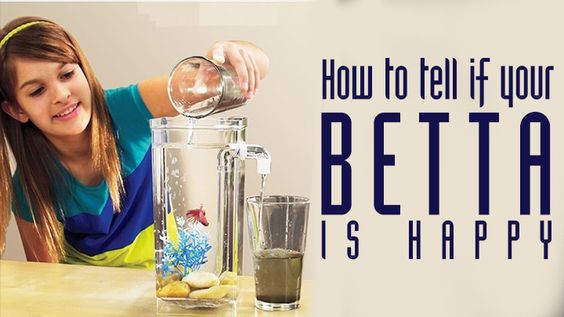Betta fish things can get complicated when trying to discern the emotions of another species. Sometimes owners may not even be as focused on the Betta’s emotional health as their physical.
While trying to figure out a Betta’s emotional status may sound like a taxing time, happy fish behavior is simple to figure out. Bettas have quite a few signs of their emotional state. Keep on reading to for the key signs you will need to look out for to tell if your betta fish is happy. You will see what happy betta fish behavior looks like and what environment they will be most content in!
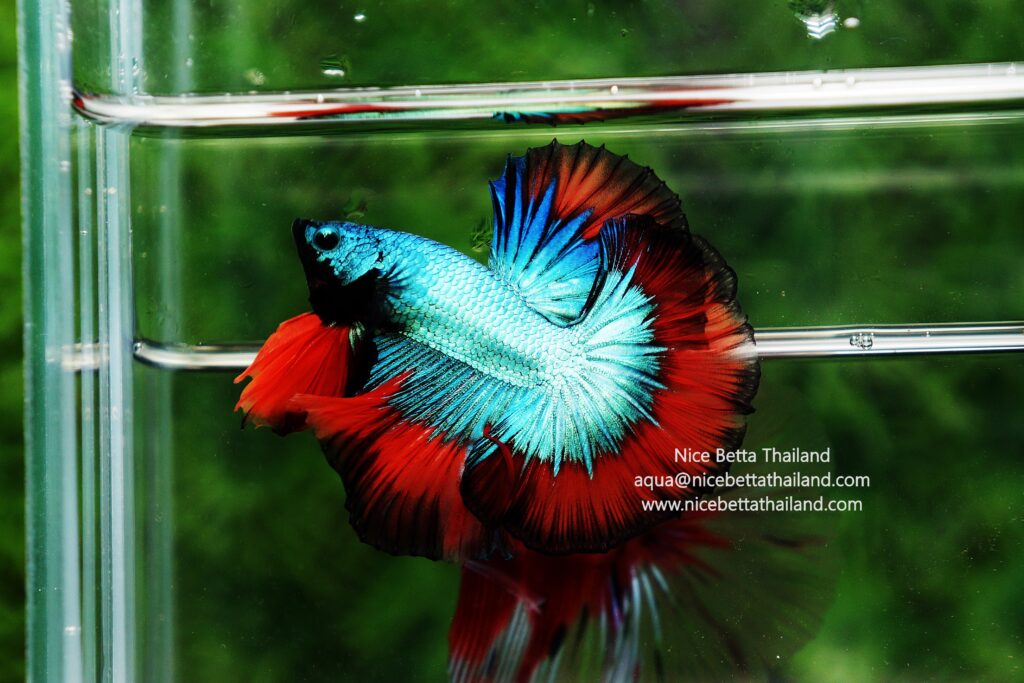
Happy Betta Fish Behavior
When looking out for a Betta’s emotional status you will need to spend a small portion of time checking on them each day. Generally, a betta fish will keep a consistent pattern in the way they act unless something is wrong with them or their environment.
The first thing to monitor with Betta happiness is their eating habits. Betta’s are a breed of fish that love to gobble up as much food as they can. A healthy happy Betta will actively start to eat as soon as his meal is put into the tank. Your Betta should always have a big appetite if they are happy.
Next, make sure that your Betta is energetic. If your Betta isn’t zipping around his tank from time to time, that’s not good. A healthy and happy Betta should be swimming around a fair amount. This should increase even more when you’re in their presence.
Healthy Betta’s are interactive fish who will follow you around the tank. You will notice your fish tends to swim up and down the side of the tank actively. They should also swim to the top quickly whenever they are looked down upon.
With this, your Betta should be doing things in preparation for attracting a mate. Breeding is one of the most natural instincts any animal in their prime will want to do. Finding a bubble nest on the water’s surface is a good sign your betta is both happy and healthy.

Signs of Depression in a Betta
You also will need to know what to look out for in depressed betta fish, as well. There are a number of signs to watch out for to tell you if your Betta is becoming depressed. If you notice these signs immediately start trying to better your fish’s environment.
The number one sign that they may be stressed or unhappy is there eating habits. While a happy Betta fish will scarf down food, a depressed Betta will barely eat. If your Betta is picking at his food or starts to ignore it then that’s a huge red flag.
Much like in people, depression in fish can cause loss of appetite. This can also be noticed through your Betta looking slimmer than usual or sickly. Additionally, if you start to notice more food waste uneaten at the bottom of the tank there may be a problem.
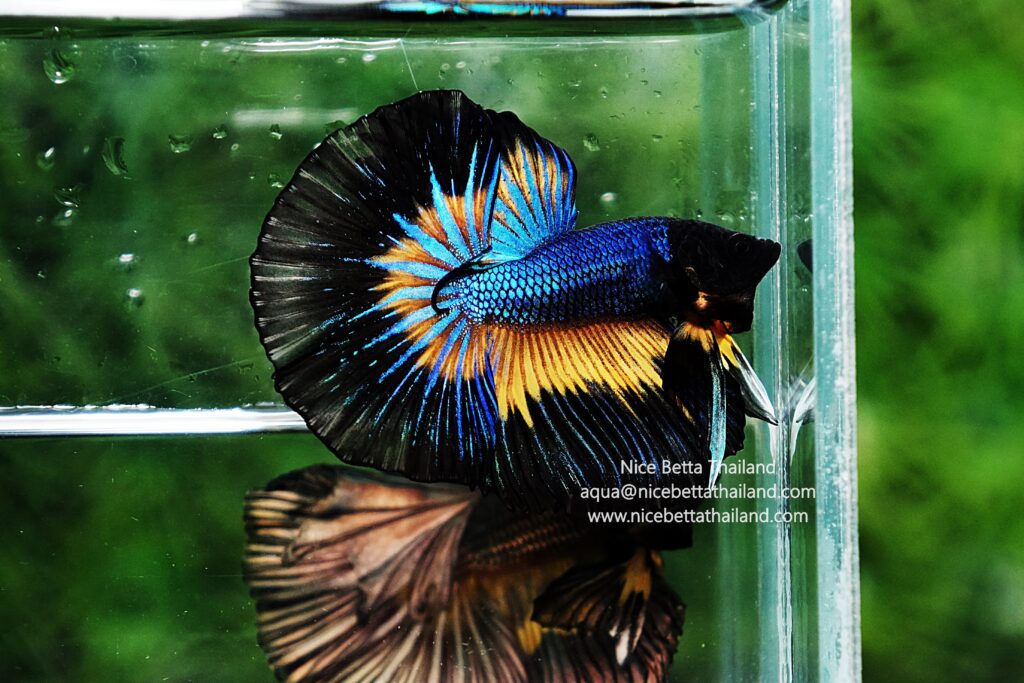
The activity level of your Betta suddenly decreasing is another huge sign of a problem. A depressed Betta will start to loaf around the tank more. Sometimes you will notice that he just seems to float in one spot for an extended period of time.
If this happens when you go near your Betta’s tank this is an even bigger sign. A betta will usual react when humans are near. If your betta seems to be hiding a lot or just hovering in their tank, this is a sure sign something has gone wrong.
Faded color or a clammed up fins are also strong indicators of depression. You also may notice aggressive or very irregular swimming patterns in some Bettas. Bodywise, look for color blemishes or unnatural stress stripes.
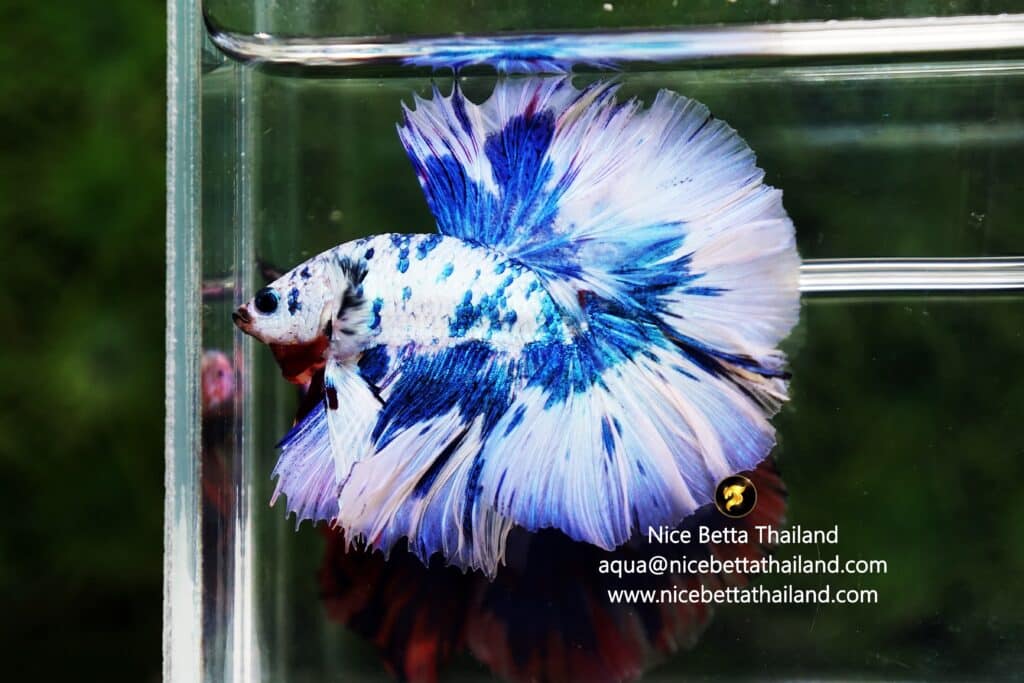
How To Keep Your Betta Happy
One of the major mistakes many Betta owners make is putting them in a small bowl or jar. A betta fish actually needs a good sized tank to properly get around in. We recommend at least a 5-gallon tank for the happiest betta fish (or bigger). The smallest tank size is 2.5 gallons but again we would recommend bigger than that. Check out some of our recommended betta fish tanks here.
By having a bigger tank you can add more to your Betta’s environment. A healthy Betta environment should consist of plenty of plants (preferably not plastic). There also should be several hide-away spots for your Betta to rest in.
If your Betta feels too vulnerable in their home it can lead to stress. With a bigger tank, you will also need to stay on top of maintenance. A dirty tank or a tank that’s isn’t properly cycled can quickly deteriorate your fish’s mood and health.
By keeping up with the water quality you are eliminating a huge cause for later health issues. With this, you should also make sure to appropriately feed your fish. Never feed your Betta more than they can eat in a 2-minute time frame.
Lastly, try adding fish toys (yeah they exist!) into the tank. By keeping your Betta in an active environment they won’t get bored. More and more fish toys are becoming available on the market every day to help stimulate your tank environment.
You also can read more about Best idea for make betta fish tank
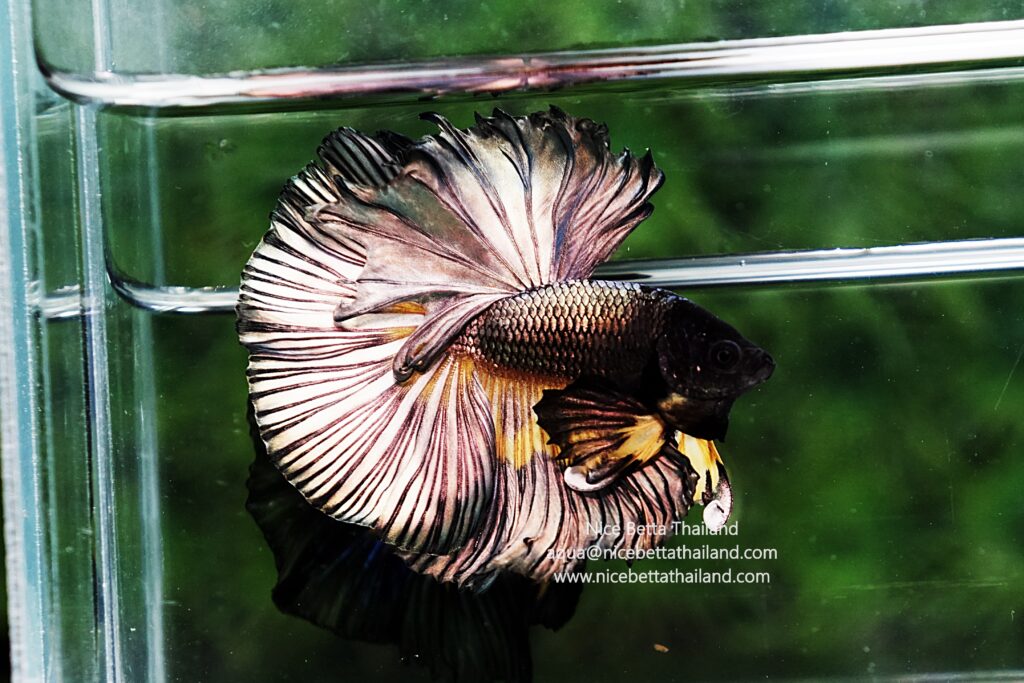
The Effects of Happiness
A Betta’s mental status can have huge effects on their overall health. A depressed Betta is more susceptible to getting sick than an emotionally fulfilled fish. Keeping your betta fish happy can be a huge help if you have had a lot of issues with things like Fin Rot in the past.
While giving your Betta a big tank and buying them toys may sound strange, it’s the same as owning any other pets. Fish are living creatures that need special care and stimulation to stay content. While it may make fish care a little more complicated to add in toys, it’s worth it in the end for a healthy pet.
Looking for Rare betta fish?
If this article Betta fish happy was useful to you You can leaving a 5-star reviews for It’s an encouragement. For us make encourage us in our research. Research information about betta fish for to present useful information further

Also we have group talk about betta fish for sale and share any new tip take care information on Web3 socialFi group

Right now we have betta fish doctor help every bettas lover by top breeder in Thailand to cure or share more tip on Animalverse social
If your bettas fish sick or need tip to treat help or join event prize with AVC Token
Let’s join the group many top breeder will help to answers in betta fish community
More tip :
15 Common Betta Fish Diseases Prevention and Treatment
Which best food for betta fish
How to Train Betta Fish. Yes, It Can Be Done
MYTHS AND THE TRUTH ABOUT BETTA CARE
All of Betta Fish A Guide on Patterns, Color in the world


